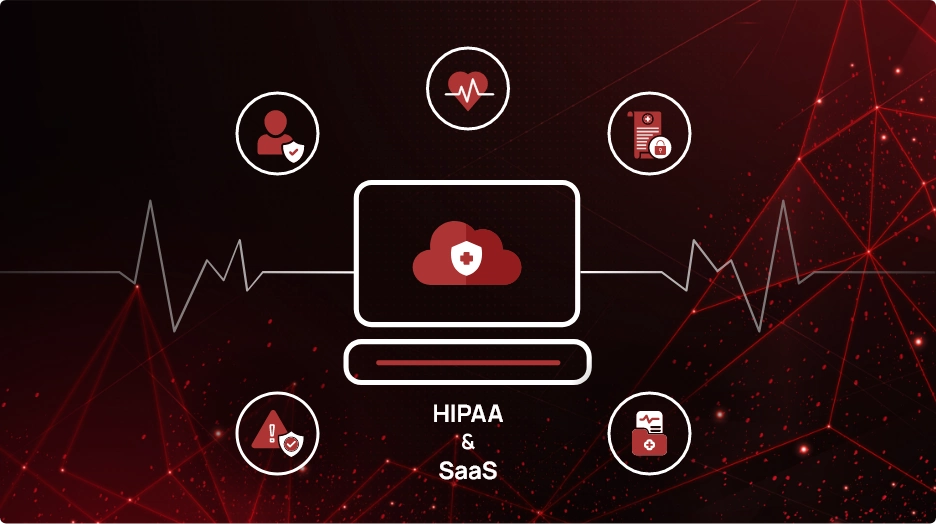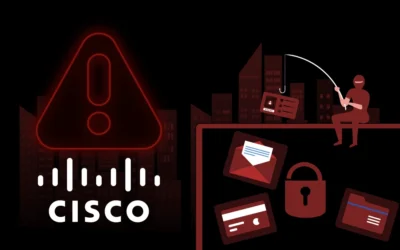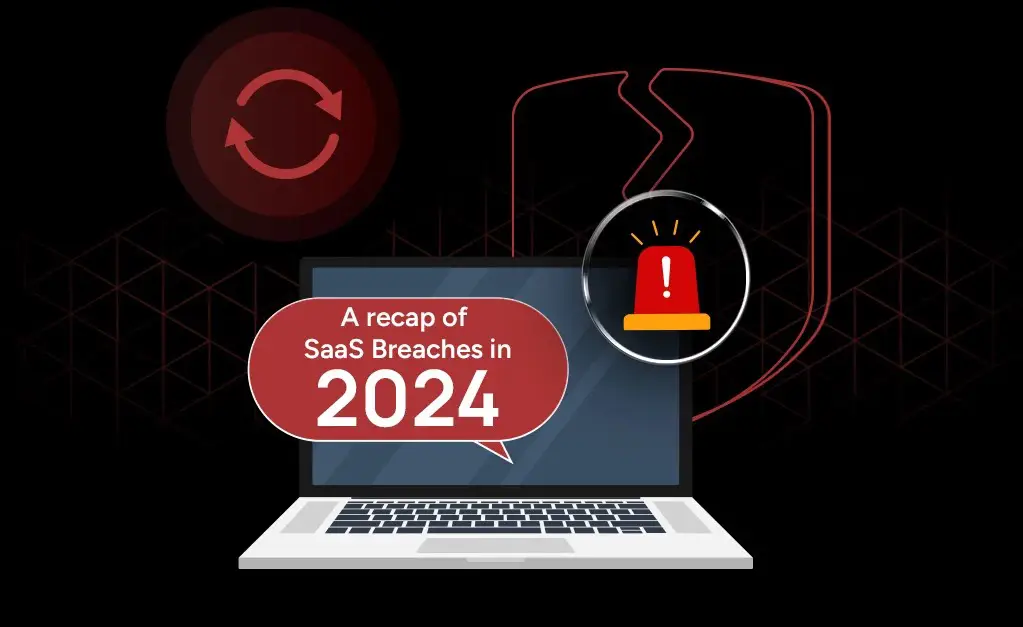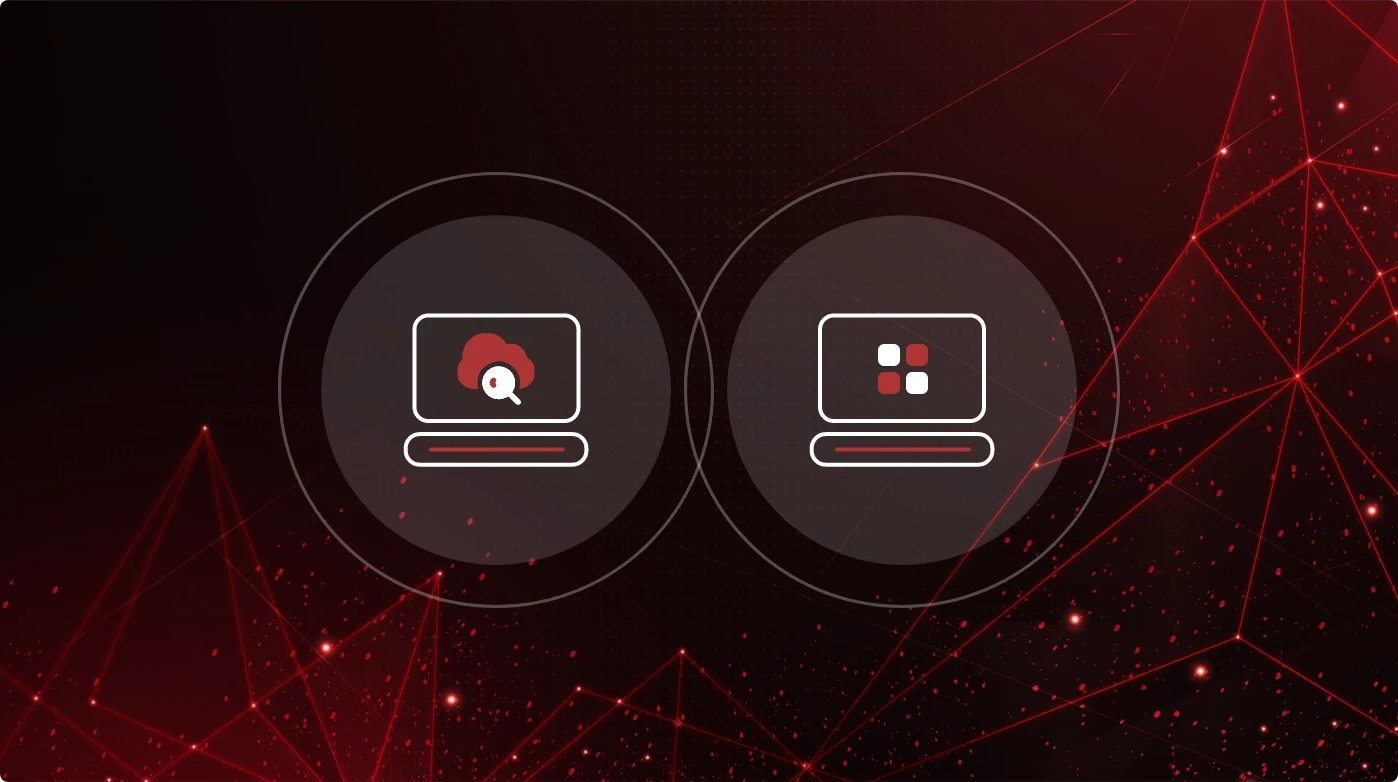SaaS Applications in Healthcare: Managing HIPAA Compliance

The healthcare industry is rapidly embracing the advantages of SaaS (Software as a Service) applications. These digital solutions have streamlined patient care and administrative tasks, offering unprecedented access to critical data. However, in this digital transformation, the need for rigorous HIPAA (Health Insurance Portability and Accountability Act) compliance remains paramount.
The growing adoption of SaaS applications brings with it a pressing concern: safeguarding patient data. HIPAA compliance is the anchor in this equation, ensuring that sensitive healthcare information remains secure.
Understanding HIPAA Compliance
In healthcare, the responsibility of safeguarding sensitive information is encapsulated within the Health Insurance Portability and Accountability Act, or HIPAA. At its core, HIPAA’s overarching mission is to ensure the confidentiality and security of healthcare information. It does so primarily through two key components: the Privacy Rule and the Security Rule.
- The Privacy Rule: It delineates how authorized personnel can access patients’ Protected Health Information (PHI). It sets the standards for when and how healthcare professionals, administrators, lawyers, or anyone within the healthcare ecosystem can access PHI.
- Security Rule: It is the practical arm of HIPAA, specifying the safeguards that must be in place to protect healthcare data. These safeguards encompass both technical and non-technical measures that collectively fortify the security of patient information.
HIPAA Compliance – The Basics
To navigate HIPAA compliance effectively, it’s essential to understand key concepts and core principles that form its foundation.
- Covered entities: Covered entities encompass healthcare professionals and organizations that have access to and process protected health information (PHI). This includes doctors, nurses, clinics, insurance providers, and more. They play a pivotal role in protecting and reporting any HIPAA violations.
- Business associates: These are individuals or services that, while not directly involved in healthcare, collaborate with covered entities and have access to PHI. Lawyers, accountants, and IT personnel within the healthcare industry are examples of business associates. They share the responsibility for maintaining HIPAA compliance.
HIPAA compliance hinges on several core principles:
- Policies: Developing and implementing comprehensive cybersecurity standards, policies, and procedures is fundamental. These policies should align with HIPAA requirements and be well-documented and disseminated throughout the organization.
- Safeguards: HIPAA compliance is about ensuring robust safeguards for PHI, both physically and digitally. Only authorized personnel should have access to physical storage spaces containing PHI. Additionally, strong password and login protocols are essential.
- Risk assessments: Conducting annual HIPAA risk assessments is imperative. These assessments should encompass administrative, physical security, and technical security measures to achieve compliance. Regular audits are crucial.
- Violation investigation: In an ideal scenario, full compliance is maintained at all times. However, lapses can occur due to negligence or partial compliance. An investigation protocol is necessary to identify, address, and remedy violations promptly.
Enhance your HIPAA compliance with these security tips:
- Strong login measures: Enforce robust ID and password standards.
- Regular activity logging: Keep thorough records of PHI access.
- Take a multi-layer approach: Examine security at various levels, from network to software, to fortify your compliance efforts.
Understanding these concepts and principles is the first step toward building a robust HIPAA compliance framework in the healthcare sector.
HIPAA and SaaS
While SaaS applications offer significant benefits, healthcare organizations encounter specific challenges when integrating them into their data management processes. Data sprawl becomes a concern, as patient information is dispersed across various platforms, potentially making it challenging to enforce HIPAA compliance consistently. Shadow SaaS applications, those not officially sanctioned by the organization, can introduce uncontrolled access points for patient data, increasing the risk of breaches. Misconfigurations, whether in user access permissions or data storage settings, can inadvertently expose sensitive information. Meeting HIPAA requirements in such a scenario is complex and demands vigilance. As healthcare increasingly relies on SaaS applications, addressing these challenges is vital for ensuring patient data remains private, secure, and compliant with HIPAA regulations.
CheckRed: A Solution for Healthcare SaaS Compliance
CheckRed is a comprehensive SSPM tool that can assist healthcare organizations in achieving and maintaining HIPAA compliance for their SaaS applications. CheckRed can scan and audit SaaS applications for security and compliance issues, such as misconfigurations, unauthorized access, and potential data exposure. CheckRed can also provide remediation workflows to resolve the issues and improve the security posture of the SaaS applications.
CheckRed assists healthcare organizations in complying with the HIPAA privacy and security rules by providing features such as continuous monitoring, access control, audit logging, and facilitation of incident response. CheckRed can also generate and store compliance documentation and evidence, such as risk assessments, policies, and procedures.
SaaS applications in healthcare offer many benefits to healthcare organizations. However, they also pose significant challenges for HIPAA compliance, as they involve the storage and transmission of PHI in third-party cloud environments. Therefore, healthcare organizations need to adopt SSPM tools, such as CheckRed, to monitor and maintain security and compliance in their SaaS applications. SSPM tools can help healthcare organizations protect their PHI, avoid violations and penalties, and enhance their reputation and trust.


